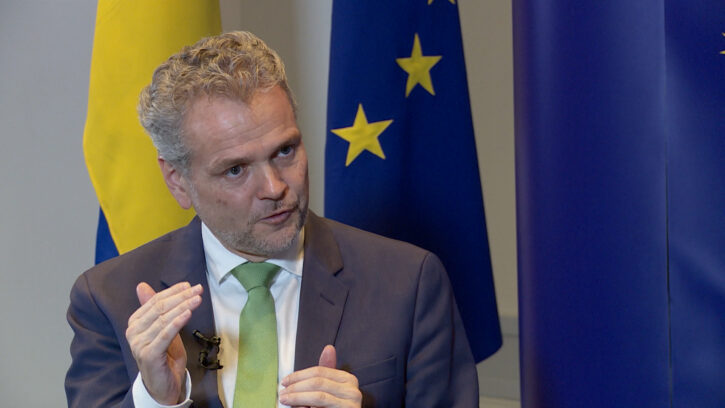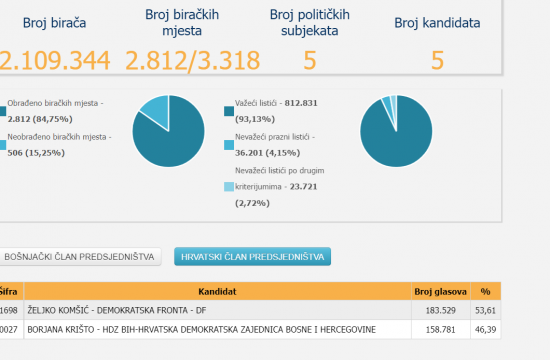
Tens of thousands of citizens still face discrimination based on their ethnic affiliation or their place of residence in Bosnia, EU Special Representative Johann Sattler wrote on his blog on Friday, urging political leaders to finally agree on how to implement a European Court of Human Rights ruling from ten years ago.
“If willing, humans can do just about anything. Run a marathon under two hours. Walk on the Moon. Successfully eradicate smallpox. If willing, humans can ensure that one country’s constitution protects everyone. Not just “yours” or “mine”, but leaving no one behind. For too long, this country has not shown that will,” Sattler wrote, referring to the fact that Bosnia’s political leaders have for a decade not found a way to implement the ruing in the ‘Sejdic-Finci case’.
Dervo Sejdic, a member of the Roma minority and Jakob Finci, a Jew, have sued Bosnia because the Constitution does not allow them to run for president or member of the upper house of the parliament.
That is because according to the 1995 Dayton Peace Agreement, the country’s presidency consists of representatives of Bosnia’s three constituent peoples – the Bosniaks, the Serbs and the Croats. Its House of Peoples is also filled with members of only those groups.
“The verdict in the famous Sejdic – Finci case disputed the provisions of the BiH Constitution which permitted only those belonging to one of the three constituent peoples to stand for election to the BiH Presidency or the state-level House of Peoples,” Sattler reminded.
“I wonder how Mr Sejdic and Mr Finci felt when they first heard about the ECHR’s decision. Did their hearts race with excitement? Did they celebrate? Plan to stand for election for the highest offices in the land? And what do they think about it all now, 10 years later? Have they lost hope?” he asked, adding that “ten years is too long.”
“No country is perfect, but valuing the freedom of every person to make a choice for themselves and creating opportunities to turn those choices into real options is what every aspiring EU member state should do. In other words, if a Jew or Roma, or any other citizen for that matter, want to run for election in any EU member state, they must be able to do so,” he wrote.
He pointed out that some may try to find excuses for “why ten years was not enough for politicians in this country to find a solution that would protect and affirm basic democratic rights of all citizens” in the country.
“The Dayton Peace Agreement stopped one of the bloodiest wars in the late 20th century, but I don’t think that its deficiencies were meant to remain unresolved. Rebuilding a long-lasting peace is about overcoming and challenging the retrograde narrative of the past. For a start, by ensuring that one’s rights are not diminished under the pretence of protecting someone else’s,” he argued.
Sattler also mentioned another, more recent ruling by the European Human Rights Court, regarding the southern city of Mostar, which saw its last local election in 2008.
Two years later, Bosnia’s Constitutional Court acted upon a motion by Croat representatives in the state Parliament, assessing parts of the state Election Law referring to Mostar as unconstitutional.
Mostar remains divided among two main ethnic parties there – the Croat Democratic Union (HDZ) and the Bosniak Party for Democratic Action (SDA) – and the two never managed to find an agreement on how the problem should be solved.
Sattler wrote that this case “reaffirmed that not all BiH citizens are equally exercising their right to political participation to this day.”
“Mostar citizens must finally be able to go to the polls and elect their own local authorities in October 2020. All BiH citizens must be eligible to stand for the Presidency in 2022,” he wrote. “Change is never easy, but necessary. Accomplishing what was previously thought to be unattainable is what true leaders do. That is, if willing!” Sattler concluded.






